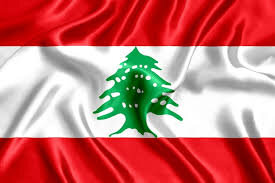Why does Lebanese Forces party continue to incite discord?

BEIRUT — The Lebanese Forces party is openly framing the upcoming elections as an existential battle, amplifying rhetoric that risks fuelling internal discord through media campaigns and theatrical displays in Parliament.
The latest chapter in this process emerged in the last legislative session, where representatives of the Lebanese Forces and the Phalange Party fought to add an amendment to the electoral law allowing expatriates to vote for all 128 members of parliament in their home districts, instead of limiting them to six seats, as stipulated in the 2017 Basic Law.
The proportional representation law passed in 2017 included an article allocating six seats to expatriates, distributed along sectarian and geographic lines (two seats for Christians, two seats for Muslims, one for Druze, and one for Armenians/minorities).
This article was to be implemented in the 2022 elections. However, the political circumstances at the time led to an exceptional suspension of its implementation, and those abroad were granted the right to vote directly for representatives in their home districts in Lebanon.
This allowed for broader participation and made a difference in some results.
Today, while the six-seat provision is supposed to be implemented in the 2026 elections, the Lebanese Forces, along with opposition forces, are pushing to repeat the 2022 experience, namely, keeping expatriates as voters in their internal constituencies, arguing that restricting them to six seats is unjust and undermines their political representation.
But behind these arguments lurk subtle political calculations: the majority of expatriates are concentrated in Europe, America, and Africa, meaning that including them in the election of all parliament members would strengthen the hand of the resistance’s opponents, where Hezbollah is classified as “terrorist.”
This parliamentary pressure was accompanied by organized media campaigns. The newspaper Nidaa al-Watan, affiliated with Lebanese Forces, published two articles with confrontational headlines: “The Clash Is Coming and Is Inevitable,” and “Joseph Aoun: Leave.”
Both articles were clearly inflammatory, targeting President Michel Aoun and the presidency, in an effort to weaken the political cover of the military establishment and ignite the street against it.
On the other hand, a significant overlap emerged between President Michel Aoun and Parliament Speaker Nabih Berri, with both sides agreeing on the need to keep the army out of political disputes and preserve internal stability. This sent a message domestically and internationally.
This harmony was seen as an attempt to curb Prime Minister Nawaf Salam’s impulse to comply with Western pressure regarding amending the electoral law to serve the interests of the opposition.
Some viewed the awarding of an honorary medal to Army Commander General Joseph Aoun as a consolidation of the military’s image as a guarantor of stability, particularly after the army’s calm management of the lighting of the Raouche Rock with the image of martyr Hezbollah Secretary-General Sayyed Hassan Nasrallah, without any security tensions being recorded.
In parallel, MPs from the Lebanese Forces and the Kataeb Party disrupted Monday’s session by staging a walkout that denied quorum, underscoring their willingness to employ obstructionism for political gain, even at the cost of institutional functionality.
Hence, Samir Geagea’s ongoing agenda of targeting President Aoun and his allies becomes apparent. This agenda is in tandem with Israeli interests intended to undermine internal stability and distort the image of the resistance.
The Lebanese Forces’ insistence on amending the electoral law under the banner of “expatriate rights” conceals electoral bets on diaspora votes to tip the balance in favour of the opposition within parliament.
Nevertheless, these attempts, amidst media incitement campaigns and parliamentary obstruction, cannot be separated from a broader agenda aimed at destabilizing Lebanon and plunging it into a cycle of political strife that would serve the enemy above all else.
Leave a Comment